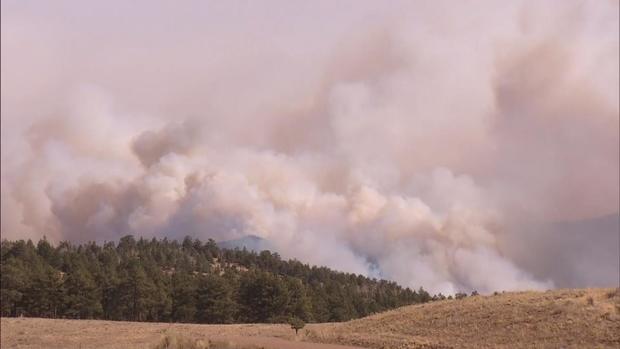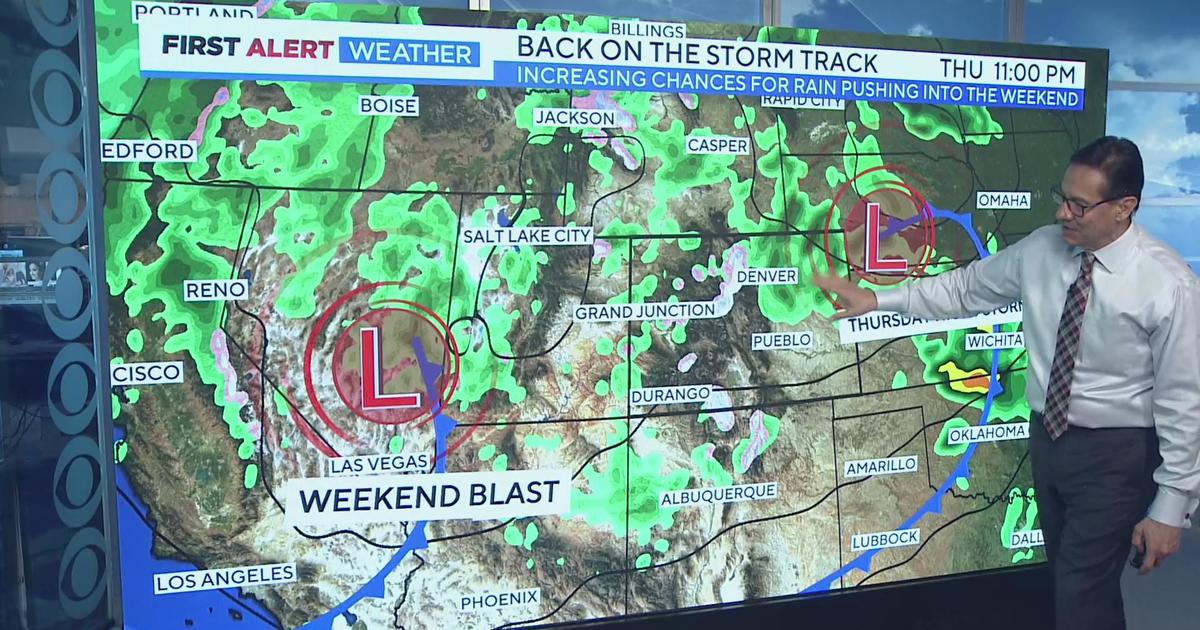Air Quality Update From CBS4 Medical Editor Dr. Dave Hnida
(CBS4) - The air quality along the Front Range region apparently looks worse than it may be from an actual health standpoint for most people.
According to the Colorado Health Department experts, the visibility is expected to be moderate poor, which pretty much is the way it looks when you take a look across the skyline. I mean, I can't even see across the city from the downtown hospital where I work. But ozone levels are expected to be in the good category, and the fine particular matter concentrations were expected to be in the moderate range on Tuesday.
So what does not mean for you? At this point the health department says that people who are unusually sensitive should reduce prolonged or heavy exertion. Translated, that means that if you have heart, lung, or some other chronic condition it might be a good idea to limit your outdoor activity. If you have issues with asthma, for example, you might be someone who would want to hold back on what you do outdoors. The very young and very old should also use caution.
Then again, I always think it's a good idea for people -- even in good health -- to limit strenuous outdoor activity when stuff like this is going on, if possible, mainly because that strenuous activity involves deep breathing. And that deep breathing does pull small bits of pollution deep into the lung tissue and airways. So heavy workouts such as a long-distance run, for example, or strenuous work, may not be as good for your airways as you think.
From a practical standpoint, I think that many of us feel the irritation of the wildfire smoke in our eyes, nose, and throat. If that describes you, you may want to use some artificial tears to soothe any irritation of the eyes. You may also want to use saline nasal spray to relieve nasal congestion. And certainly drinking lots of fluids will help ease any discomfort in her throat. On the other hand be careful what you drink because alcohol or caffeinated beverages may contribute to drying the mucous membranes of your mouth, throat, and nose.
Now certainly, while there are no advisories in effect on Tuesday, that can certainly change depending upon the fire as well as environmental conditions. So stay tuned for any changes in the situation as it could impact your health, especially from our weather folks.
Wildfire Resources
- Visit CBSDenver.com's Living With Wildfire section.
Wildfire Photo Galleries
- See images from the most destructive wildfires (Black Forest, Waldo Canyon, High Park and Fourmile) and largest wildfire (Hayman) in Colorado history.
Dr. Dave Hnida is CBS4's Medical Editor. He blogs about the latest studies and trends in the health world. Read his latest blog entries, check out his bio or follow him on Twitter @drdavehnida.




